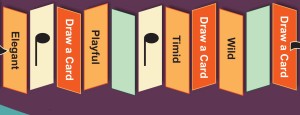We Don’t Need No Stinking Board Games
 “We don’t play board games in my studio.”
“We don’t play board games in my studio.”
I’ve been told this many times over the years. The reasons have varied. Piano learning is serious business. I don’t have time to organize games. I hate playing games myself. Students can play games on their own time; we barely have time to learn pieces and scales as it is. More recently, I’ve been hearing- With today’s smart phones and tablets the need for board games is over.
I try to build a support group through studio classes and other events. Students need to see that they are not the only ones challenged by a concept or skill. They also need to understand that everyone has something that challenges them and learn to both help others and receive help from others.
To me, board games are team building activities. So much of learning to play piano is solitary, in your head, work. Yet pianists must learn to collaborate as duet partners, partners for other instruments, and in ensemble work. Whether a student becomes a professional musician or not, much of their musical life will be spent working with others not alone on a concert stage.
Games also give me a way to evaluate what students know in both private and group situations. When students are having fun, they are relaxed and you get a much better picture of what is going on in their thought process. For example, in my game, Musical Words, I can notice how deeply they can think and connect to music, what kind of vocabulary they have in and out of music, their attention span, how flexible they are in varying character and color, their understanding of musical form, and much more.
Using social games does create some organizational work. You have to know how to play the game yourself. You have to know exactly what your goals are for using a particular game. You have to organize the materials and instructions so that the majority of class time is spent on the activity.
You have to decide how to best use the game for the students in the group and the time you have available. (Yes, you can absolutely customize the cards you use, modify or make up new rules, etc.!) You have to decide how much of your class time is to be spent on the game too. I often use a timer and we are done when it goes off. Whoever is ahead at that point is deemed the winner.
There are many musical games out there. They cover everything from simple note and rhythm recognition to more complex, layered musical skills. You can convert popular game boards to music games simply by creating cards, or spinners with note names, rhythms, terms, etc. on them.
To get started or add some new games to your collection, check out these resources: The Music Teacher Store, Piano Addict Musical Words, Teachers Pay Teachers. Generally, the more in depth the game, the higher the price. Downloads start as low as $1 and can go up to $20. Some vendors allow you to name your own price. Downloads are great because you can print them when needed, in any size, and laminate as you wish. Physical copies of board games run in the $10-$40 range depending on the size, quality, and shipping costs.
Oh, and that thing about game apps for smart phones and tablets? We are talking apples and oranges here. Music is about communication with others. Apps are, for the most part, solitary activities. Essentially, the same environment as the practice room. Board games are social. They require 2 or more people to engage with each other in real time. Teachers become mentors and referees rather than authorities.
And that’s why I definitely do need some stinking board games in my studio.


